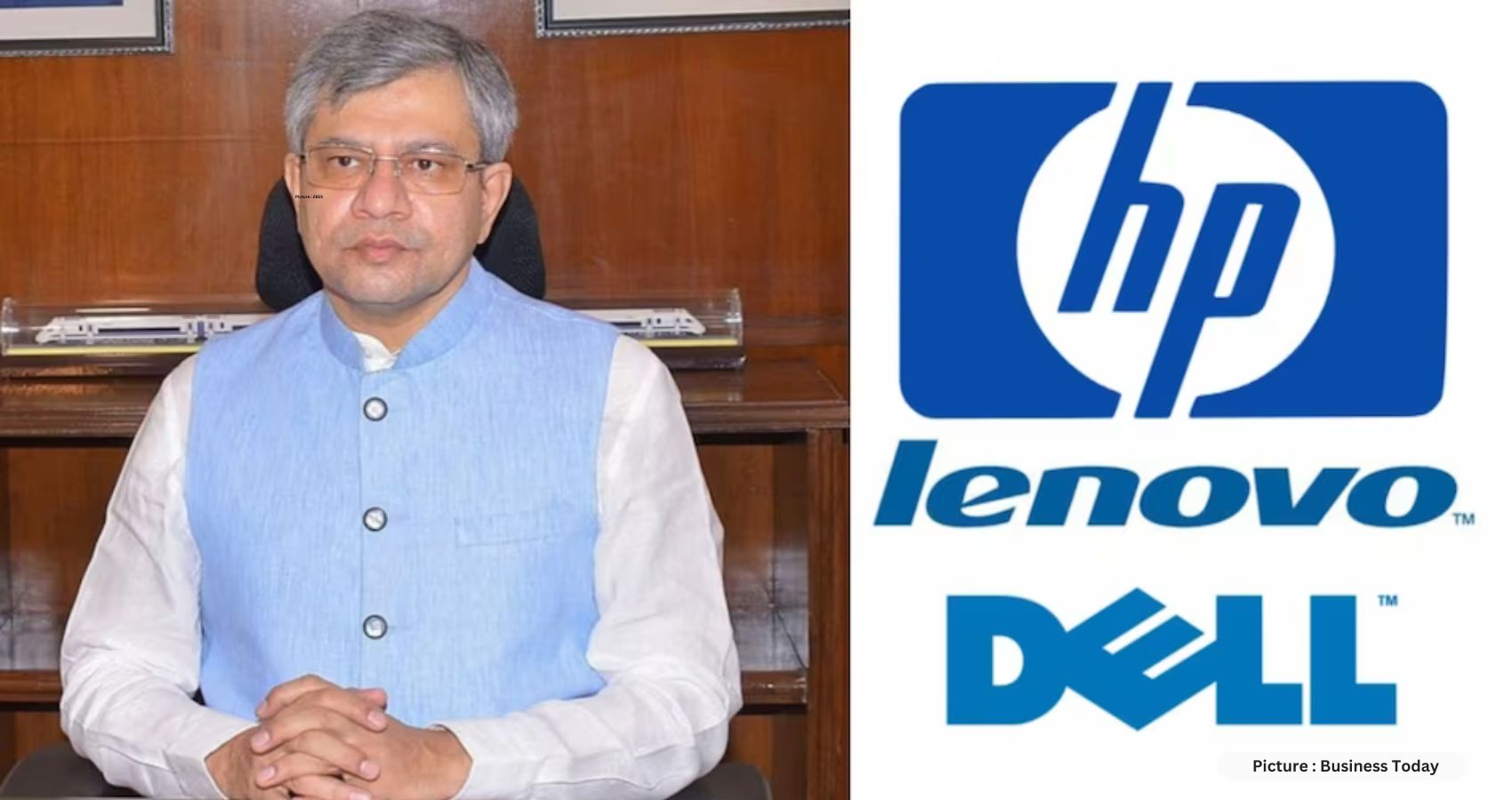The Indian government has taken a significant leap forward in bolstering domestic manufacturing by approving Production Linked Incentive (PLI) schemes in the IT hardware sector. Ashwini Vaishnaw, the Minister for Electronics and Information, announced that 27 companies have received approval, marking a crucial milestone in the country’s quest for self-reliance in the technology industry.
Vaishnaw highlighted that among the approved companies, 23 are set to commence manufacturing operations immediately, while an additional four will initiate within the next 90 days. This move is expected to infuse a substantial Rs 3,000 crore into the industry, generating direct employment for 50,000 individuals and indirect opportunities for 150,000 more.
The initiative attracted applications from a diverse pool of 40 companies, including industry giants such as Dell, HP, and Lenovo. Their commitment involves the production of personal computers, laptops, tablets, servers, and assorted equipment, with an estimated value of Rs 4.65 lakh crore during the scheme’s tenure.
Vaishnaw reassured that companies not yet approved are actively assessing the scheme and are expected to join the initiative soon. This signals a positive trend, indicating broader industry participation in the transformative phase of domestic manufacturing.
The genesis of this monumental step traces back to May when the Cabinet approved a revamped IT hardware PLI scheme worth Rs 17,000 crore. Spanning six years, this initiative aims to significantly boost domestic manufacturing in laptops, tablets, all-in-one PCs, servers, and ultra-small form factor devices. Projections suggest that it will trigger incremental production worth Rs 3.35 lakh crore and create approximately 200,000 job opportunities.
In contrast to the previous scheme, which offered incentives of up to 2 percent of net sales for domestically manufactured goods, the revised version substantially elevates the basic incentive to over 5 percent. This strategic adjustment aims to provide more attractive benefits to companies participating in the scheme, thereby encouraging greater involvement in domestic manufacturing.
Moreover, the revamped scheme places a strong emphasis on catalyzing local manufacturing of smaller components in computing devices. Additional incentives, reaching up to 3 percent, are introduced for companies procuring domestically-produced components such as memory chips, printed circuit board assemblies, solid-state drives, chassis, power supply components, and adaptors. This multifaceted approach is designed to address challenges faced by the industry, including inadequate infrastructure, domestic supply chain and logistics issues, high financial costs, power quality limitations, limited industry focus on research and development, and skill development gaps.
The Ministry of Electronics and Information Technology (MeitY) acknowledges that the industry grapples with significant challenges, experiencing setbacks ranging from 8.5% to 11%. The National Policy on Electronics 2019 (NPE 2019) underscores the overarching goal of establishing India as a paramount hub for Electronics System Design and Manufacturing (ESDM). This vision seeks to foster indigenous capabilities in developing core components, creating a conducive environment that empowers the industry to compete fiercely on the global stage.
In the words of Minister Vaishnaw, “This development is a crucial stride towards realizing the goals set by the NPE 2019. The approval of PLI schemes for the IT hardware sector underscores the government’s commitment to boosting domestic manufacturing and creating a self-reliant ecosystem in the technology industry.”
The approved entities, including well-known names such as Dell, Foxconn, HP, Lenovo Flextronics, VVDL, Neolink, Bhagwati, Netweb, Sahasra, ILP, and Optimus, represent a diverse consortium of manufacturers entering this transformative phase. Their participation is expected to not only contribute significantly to the Indian economy but also strengthen the country’s position in the global technology landscape.
As the approved companies gear up to initiate manufacturing operations, the ripple effect of this government initiative is poised to stimulate economic growth, create job opportunities, and position India as a key player in the IT hardware manufacturing sector. The success of the revamped IT hardware PLI scheme hinges on sustained industry participation, effective implementation, and continued government support, marking a pivotal moment in India’s journey towards technological self-sufficiency.











